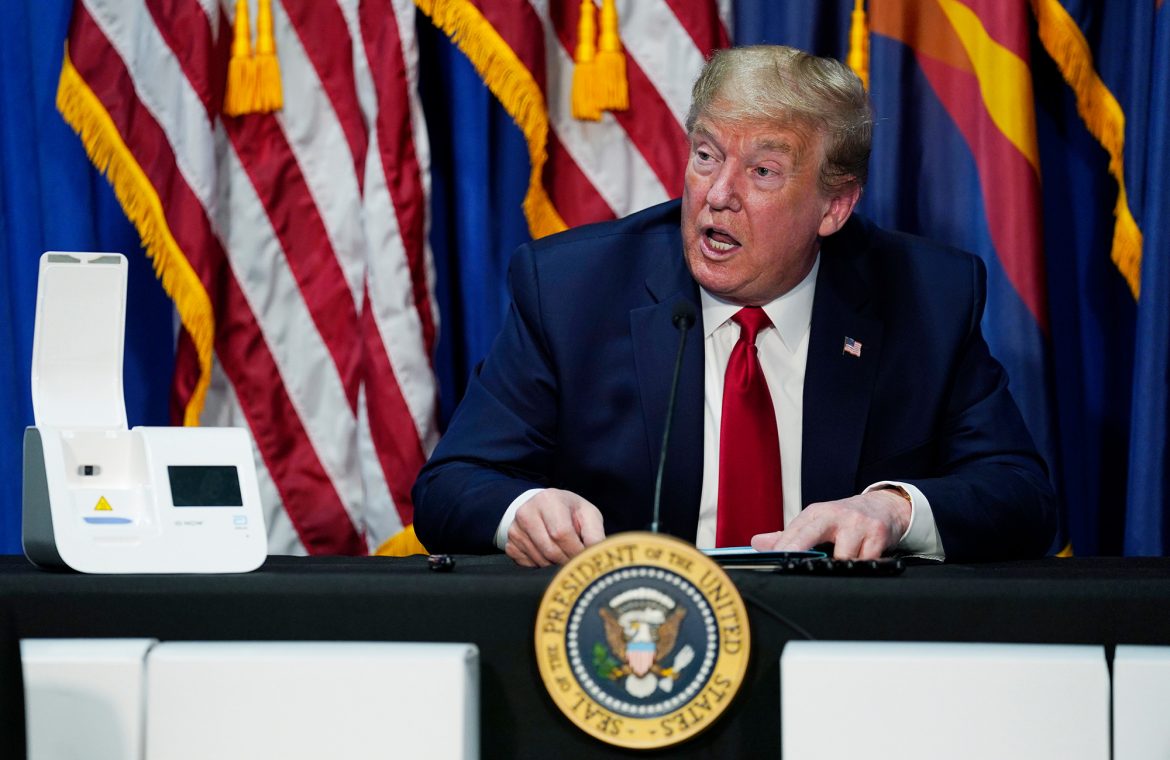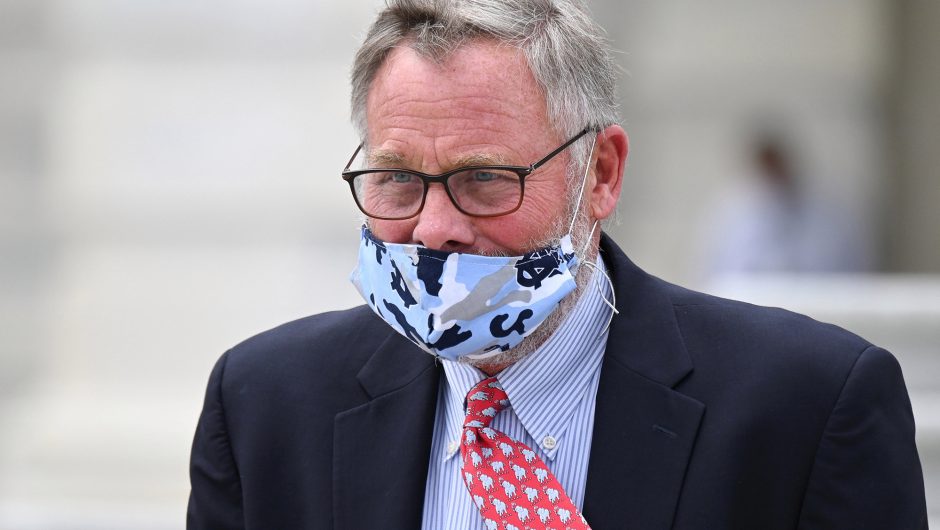President Trump says he prefers that businesses struggling because of the coronavirus pandemic work with lenders — including using bankruptcy protection — to keep afloat, rather than take government aid.
Trump told The Post in the Oval Office on Monday that he thought it was “very good” that J.Crew was able to reach a deal with lenders as part of a bankruptcy declaration. On Monday, the company became the first national retail chain to declare bankruptcy because of the pandemic.
“If they can work it out with their creditors I’d prefer that. But we’ve saved the airlines now, you know with $25 billion and another $25 billion. We’re saving many companies, the big companies and also the small businesses. We’re doing both,” Trump said.
As part of a more than $2 trillion stimulus bill passed in late March, Trump approved $500 billion in a Treasury Department business loan program that covered airlines and a separate $350 billion fund for forgivable small business loans.
The small business program benefits firms up to 500 employees, and in exceptions more. A second tranche of $310 billion was approved last month but is quickly running dry.
Trump told The Post he expects the economic downturn — which left 30 million people unemployed — to be reversed quickly as states gradually allow businesses to reopen.
“I think you’re gonna have a phenomenal following year,” Trump said. “Because there’s a lot of stimulus that is really going to go into that following year, that’s where you’re gonna see it.”
Trump said in response to J.Crew’s bankruptcy filing that he believes it’s unfair for internet companies to pay different taxes. He didn’t name any, such as Amazon, run by frequent Trump target Jeff Bezos, who also owns The Washington Post.
On retailer bankruptcies, Trump said: “You’ll see some of that, but that was going on before because of the internet. And you know, it’s a little unfair to some of these retailers — it’s a lot unfair where internet has a tremendous tax advantage over stores. They have to pay real estate taxes and various other taxes that these internet companies aren’t paying. And it’s very unfair when people are looking at. But it’s, you know, they’re really not dealing with the same deck of cards.”
Trump also told The Post he is again considering indexing capital gains to inflation, a tax reform that arguably can be done without Congress. Trump considered the idea last year but shelved it after deciding it would disproportionately benefit the wealthy by lowering taxes for stocks and properties.
“People love it or hate it,” Trump said of indexing capital gains.
Although advocates say it could spur economic growth and help boost real estate transactions, Trump said the reform “could also create a lot of problems.”
“What’s hard is every time you do something you need appraisals,” he said. “Indexing, it’s got its fans and it’s got its opponents, and I would say they are split 50-50. But it’s always something, you know, it can have an impact. But you have to look at what are you giving up.
“Look, there is no panacea other than hard work. But it’s something that I’ve been thinking about as you know because I brought it up last year.”
Trump said he holds out hope that Congress will approve a payroll tax cut in an additional coronavirus relief bill
“We’ll see what happens. I think Congress is inclined to do a lot of things,” Trump said.
One thing Trump isn’t considering is removing his name from future stimulus checks. Critics attacked the appearance of his name on checks of up to $1,200 to US residents via the $2 trillion stimulus bill. Trump also sent a signed letter to recipients from the IRS.
“Is that a big deal? I didn’t even know. It’s only a front page story in The New York Times. I didn’t know it was a big deal,” Trump joked. “Some Democrats were upset? You mean, that I signed their checks — or their letter, which is even better? No, I don’t think it’s a big deal.”








